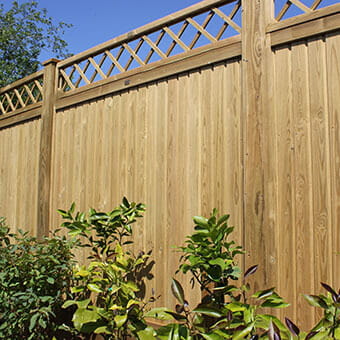31/07/2013 11:00 PM
When a London based couple made the decision to install an automated single sliding gate at their London property, the aim was to provide an effective means of access control to their private residence, which is on a busy road with a public footpath running alongside.
They approached a West London company whose advertising and promotion reassures customers of their endeavours to make ‘your property safe and secure’. An ironic claim given what followed.
The couple paid a 50% deposit against the agreed works which represented a figure of just over £3.5K. As the installation process began, seeds of doubt regarding the technical competence of the firm began to take root. The installers initially failed to supply a stabilising post to hold the gate when open which, given its 15 ft span, was essential. The couple also pointed out that the uneven slabs with a thin packing of cement underneath would not be a suitable foundation for the track on which the gates were going to run. Following the couple’s comments, the firm decided to partially inlay the track into the slabs, although this is still not satisfactory as the cement packing is no longer stable.
Once the gate itself was installed, the couple pointed out that it was bent and featured shabby welding. The installers spoke to their office and the gate was replaced with a new one. At this point, the couple’s gates were put in use and the installers confirmed that the work was completed.
No certificate was issued to confirm the electrical compliancy of the gates but when the couple raised concerns about this, they were initially brushed off by the firm, suggesting it was not necessary. However, the company eventually agreed to have the gates electrically tested by a qualified electrician which resulted in the gate being condemned and immediately shut down by the attending electrician.
Subsequent conversations with the company led to them saying that if the couple were unhappy with the installation they should give them back their money and take away the gate. Since the couple had lost all faith in the company’s ability to install a safe and compliant gate, they agreed to this course of action.
However, the company then, claiming to have sought legal advice, had a change of heart and advised that they were entitled to ‘put it (the gate) right’.
By this time, the couple were feeling distinctly uneasy about the company and contacted Gate Safe for a review of the installation. Gate Safe found the gate to be non-compliant on a number of counts:
- The Automatic Gate did not feature the required CE marking
- The gate did not feature the required safety devices (e.g photocells had been fitted but only to the outside of the gate when they should have been fitted to the inside of the gate to protect pedestrians and vehicles leaving the property; no safety edges were fitted to the leading and trailing edges)
- No evidence of force testing
- Control equipment poorly installed posing a risk to people leaning over to operate the gate. This should have been remedied by either installing some form of guarding or moving the location of the equipment away from the supporting posts of the automatic gate
- No guarding on the rollers of the gate, presenting a risk of ‘drawing’
- The gate had been fitted so that it opens against a fence that is only 110mm away. For safety reasons, the fence line should be sheeted with mesh (50 x 50 mm square) or with Perspex sheets to prevent any limbs being crushed, dragged or sheared if they were to be put through the fence when the gate receives a signal to operate.
- No “minor works certificate” had been raised in respect of the works. Further, no Part P certificate had been raised, pursuant to the Building Regulations 2000.
When the couple instructed a solicitor to approach the company to encourage a return of the deposit / removal of the offending gates, they claimed the installation was incomplete.
Today the couple have an automated gate that is unfit for use, non compliant and they are £3.5k out of pocket.







